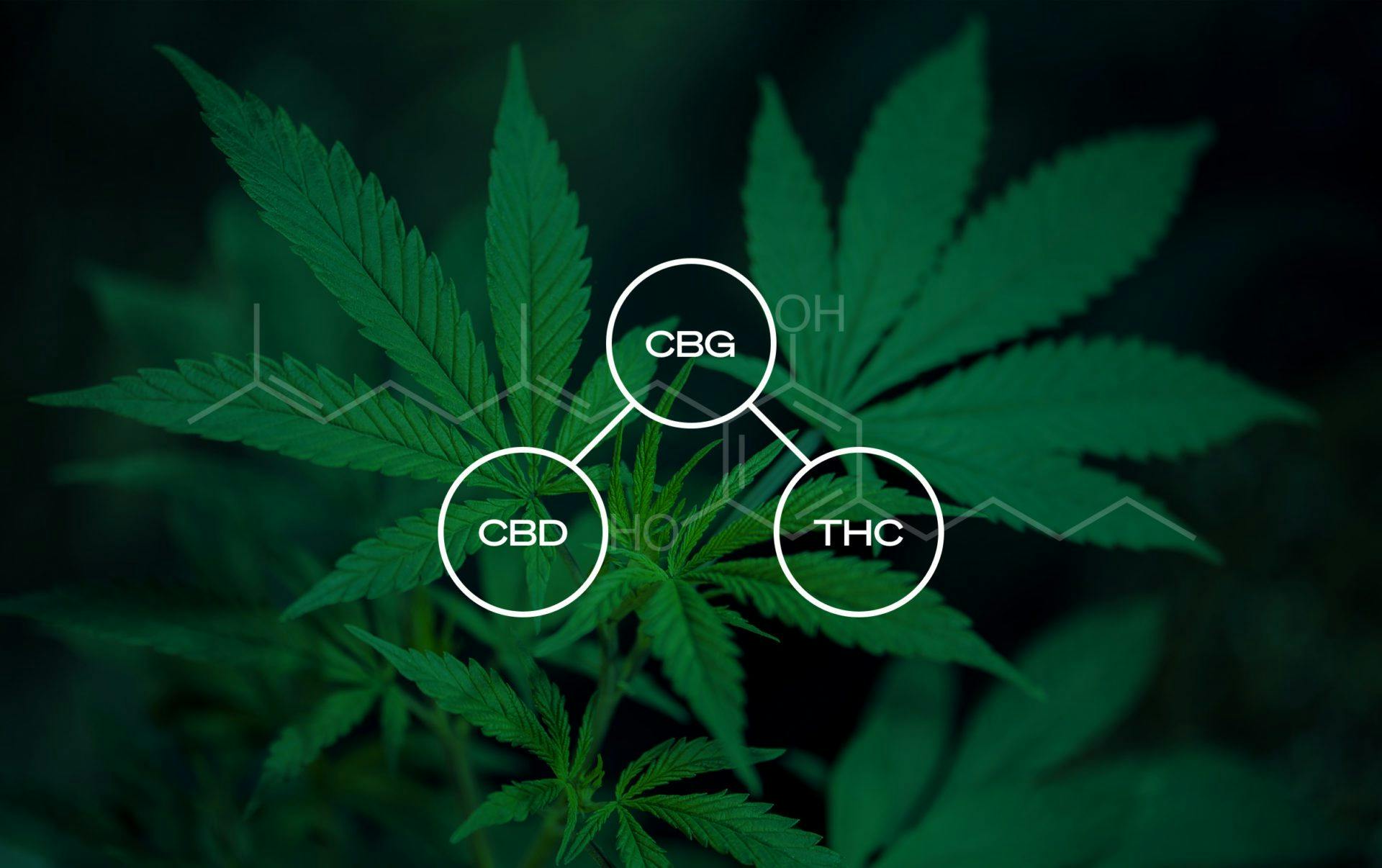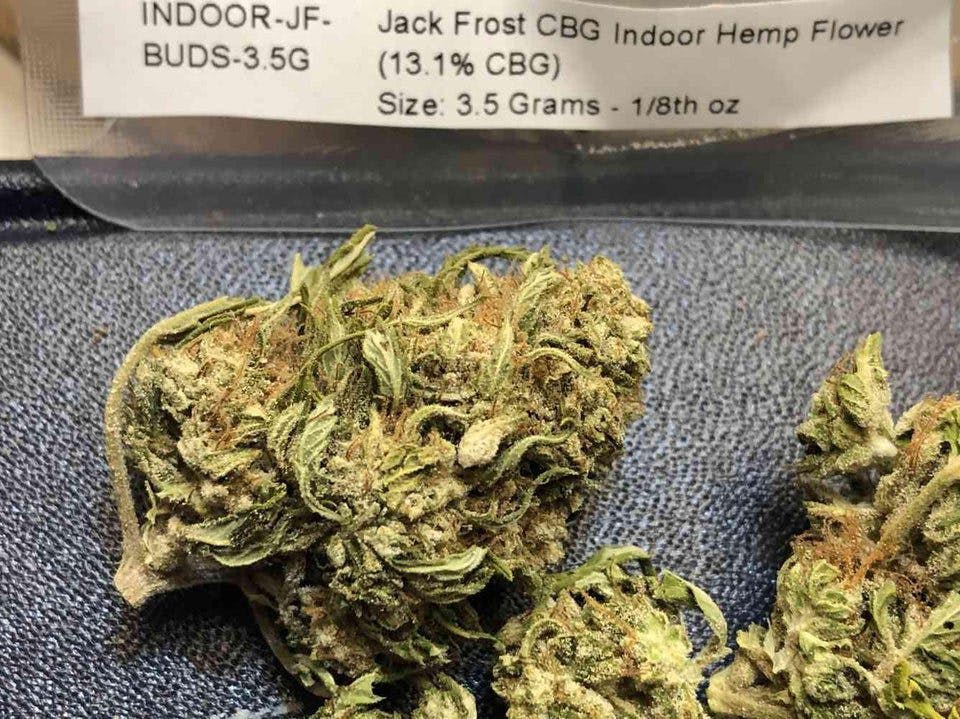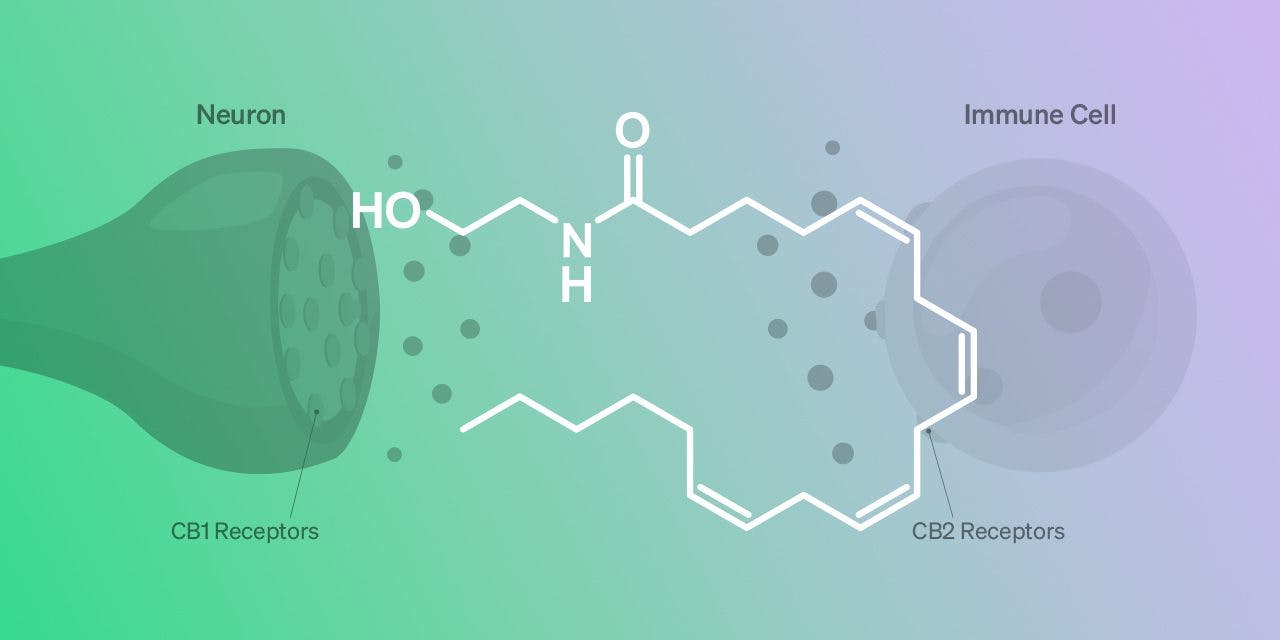What Is CBG (Cannabigerol)? Benefits, Uses, Dosages

Article written by

Shanti RyleContent Writer
Content reviewed by

Dr. Lewis JasseyMedical Director - Pediatric Medicine
With all the talk about THC and CBD, we often forget that there are other cannabinoids found in marijuana plants, including cannabigerol or CBG. CBG is the third most common cannabinoid in marijuana, and research has shown that this cannabinoid has therapeutic potential for a wide range of medical issues, including chronic pain, neurological disorders, and multiple sclerosis.
Get your medical marijuana card
Connect with a licensed physician online in minutes.
How CBG Is Made
Cannabigerol is known as a “parent” cannabinoid to many other minor cannabinoids found in the Cannabis sativa plant.
To get a little technical, cannabigerolic acid (CBGA) is the acidic form of CBG. It’s the chemical precursor for THCA and CBDA, which are the acids that evolve into THC and CBD. These compounds evolve into a usable form when heated by fire (when smoking a bowl, for example) or when turned into vapor.
CBG is formed naturally by cannabis plants. You’ll find more of the cannabinoid in young cannabis plants before they convert into other chemicals. As marijuana plants mature, the amount of CBG they produce decreases. You can also find CBG in hemp plants.
How CBG Works
Before we get into CBG, let’s look at two types of cannabinoid receptors in the human body: CB1 and CB2. CB1 receptors are located in the central nervous system, and CB2 receptors are found in the immune system.
Research is mixed on how CBG interacts with CB1 and CB2 receptors, but it appears to improve mood and act as a pain killer without the same psychoactive effects as cannabinoids like THC. More research is needed to understand the mechanisms behind cannabigerol and how it interacts with cannabinoid receptors.
Does CBG Get You High?
The body’s endocannabinoid system processes CBG at the same time other cannabinoids interact with the body. That means it doesn’t make you feel intoxicated like products high in THC make you feel.
In fact, the way CBG interacts with the endocannabinoid system may counteract THC’s psychoactive effects as they compete for space at CB1 receptors. However, the presence of CBG may also elongate how long THC is in the system while lessening its effects.
It’s important to note that while non-intoxicating, CBG still interacts with the body to produce physiological effects — many of which show promising health benefits.
Potential Health Benefits
Recent clinical research shows that CBG products may have a host of therapeutic effects, though human studies in this corner of cannabis research are sparse.
That said, animal studies have found that CBG benefits may include providing relief for things like nerve pain, cachexia, and anxiety.
Anxiety and Depression
CBG may be useful for treating depression and anxiety. CBG is known as a GABA reuptake inhibitor, which increases the amount of GABA (an important brain chemical) available in the body.
Increasing GABA can provide muscle relaxation, tension relief, and a sensation of calm in the body. GABA deficits are associated with anxiety and depression, which is why GABA medications and supplements are already used for generalized anxiety disorder.
Because CBG has been shown to elevate GABA levels, it points to the cannabinoid as a promising treatment for certain mental health conditions or low mood.
Inflammatory Bowel Disease
CBG’s anti-inflammatory properties could make it particularly useful for conditions that affect the bowels, including inflammatory bowel disease (IBD), Crohn’s disease, and colorectal cancer.
One animal study reported CBG helped reduce inflammation in mice with IBD. CBG may also stimulate appetite due to its effect on CB1 receptors, which could potentially be very useful for health conditions like eating disorders and wasting syndrome.
Glaucoma
Research points to CBG as a potential aide in treating glaucoma. It works by reducing pressure in the eye (intraocular pressure) and providing the eyes with nutrition.
Huntington’s Disease
This rare genetic disease causes a breakdown of nerve cells in the brain. In addition to THC and CBD’s neuroprotective capacities, research finds CBG also acts as a neuroprotectant. This could be useful for people with Huntington’s disease by inhibiting damage to nerve cells.
The same study showed that CBG and other cannabinoids improved motor deficits and shielded the brain from toxins. These results mean CBG has the therapeutic potential to aid with symptoms of other neurodegenerative conditions like multiple sclerosis.
Myalgic Encephalomyelitis/Chronic Fatigue Syndrome
CBG is one of the few natural cannabis compounds worldwide that prevents and repairs neurological damage. The cannabinoid is of particular interest to sufferers of what’s called myalgic encephalomyelitis/chronic fatigue syndrome thanks to its ability to dampen inflammation and limit damage to cells in the spinal cord and brain.
Amyotrophic Lateral Sclerosis (ALS)
Because of its neurogenic (beneficial to the nervous system) properties, CBG may be an option for individuals with amyotrophic lateral sclerosis (ALS). Studies have found the antioxidant and anti-inflammatory properties of CBG may help soothe pain associated with ALS.
Brain Trauma
A research review that examined the therapeutic potential of CBG and other cannabinoids for brain trauma found considerable evidence for the neuroprotective abilities of CBG. This means CBG may be a useful defender, protecting the brain from long-term damage from physical trauma.
Cancer
Along with being an anti-inflammatory agent, CBG may block receptors responsible for cancer cell growth. For example, it’s been shown to inhibit the growth of colorectal cancer cells. As such, CBG may be a useful treatment and preventative for certain cancers.
CBG Side Effects and Interactions
Little research has examined the side effects of CBG or how the cannabinoid interacts with other drugs. However, because of CBG’s antibiotic properties and effects on nausea, it’s reasonable to assume it could interact with the following:
- Antibiotics and antimicrobials
- Anticancer medications
- Antihistamines
- Antiepileptic drugs
- Blood pressure and heart medications
- Blood thinners
- Cholesterol medications
- Corticosteroids
- Erectile dysfunction medications
- Gastrointestinal (GI) medications, like those to treat gastroesophageal reflux disease (GERD) and nausea
- Immunosuppressants
- Medications used to treat anxiety, depression, and mood disorders
- Pain medications
- Prostate medications
How to Use CBG
The most common method of using CBG is in oil form. In cannabis plants, CBG is only present in small amounts, making CBG oil somewhat tricky and expensive to find at your average cannabis dispensary.
CBG is also notoriously expensive to isolate, as the equipment required to do so is expensive. Making CBG easier to derive from cannabis plants is a profitable endeavor, so there’s an incentive to breed more CBG-rich varieties.
Cannabis Strains High in CBG
More CBG-forward strains have been developed recently, and growers will likely breed more in the future. Here are some strains all high in CBG:
- Matterhorn
- Stem Cell
- White CBG
- Jack Frost
- Super Glue
- Lemon Cream Diesel

CBG: The Bottom Line
While the research is ongoing, CBG shows promise as a therapeutic cannabinoid. It’s also been shown to work well in tandem with other cannabinoids like THC, CBD, and more.
Here at Leafwell, we believe all cannabinoids have unique properties that can be used separately or together to help treat medical conditions. If you’re interested in learning more about CBG and other cannabinoids, connect with a Leafwell physician today.
Get Your Medical Marijuana Card
Connect with a licensed physician online in minutes.
Frequently Asked Questions
How does CBG make you feel?
While studies are lacking, anecdotal reports of CBG’s effects on the body celebrate its ability to relieve pain and reduce anxiety without causing one to feel drowsy.
What is CBG good for?
CBG has many health benefits, but it is particularly good for pain relief and managing anxiety.
Is CBG psychoactive?
CBG is not psychoactive, making it a perfect option for those seeking relief from pain or anxiety without the psychoactive effects of THC.
Does CBG have THC?
No, CBG does not contain THC. But, cannabis strains that contain CBG will most likely contain THC.



